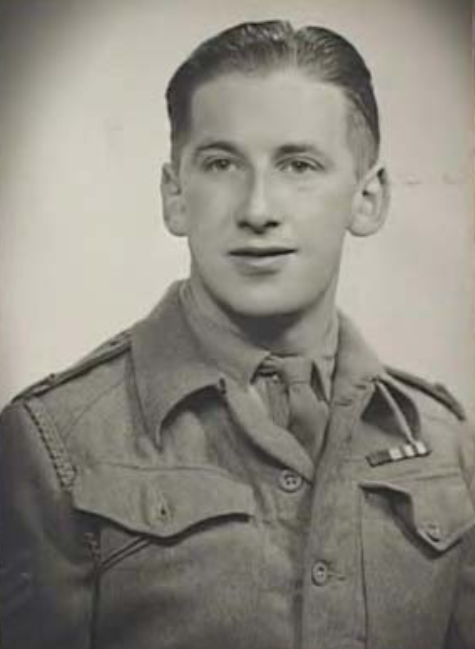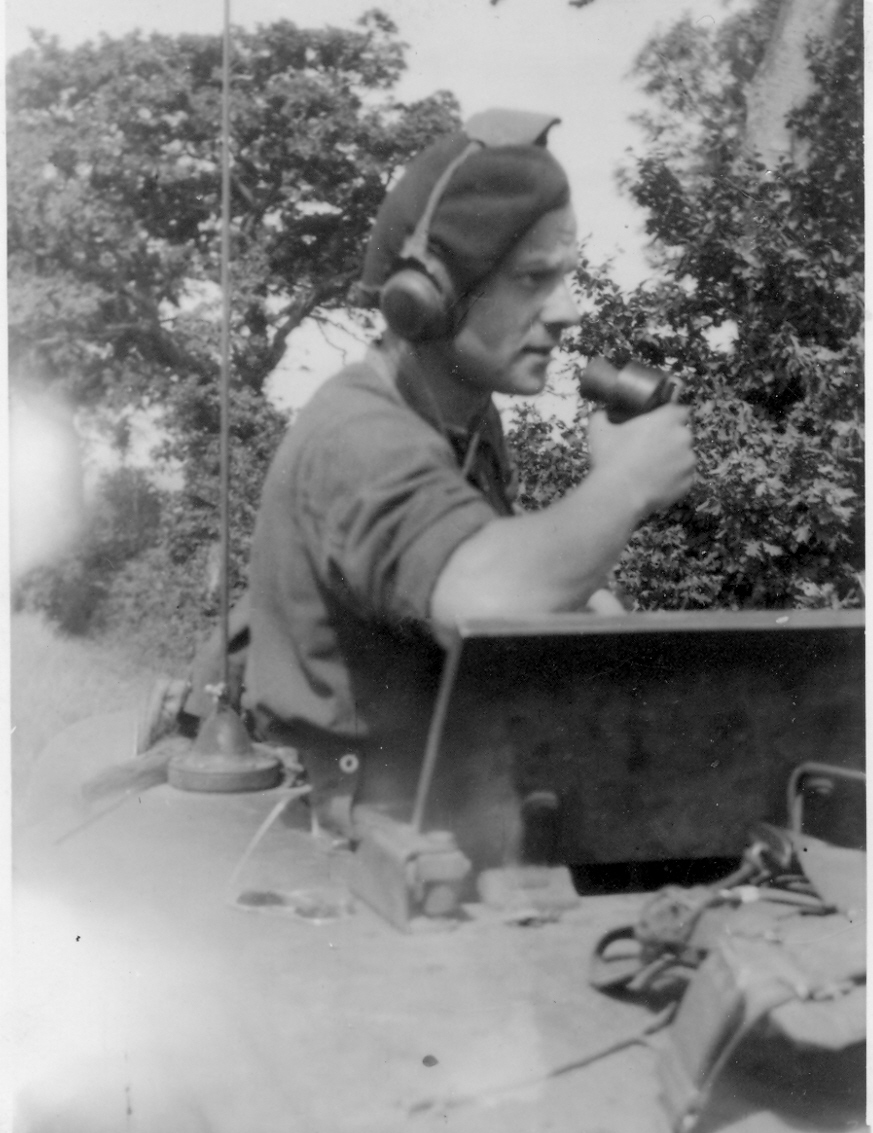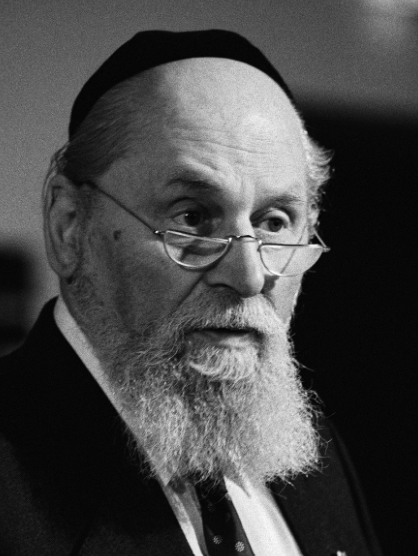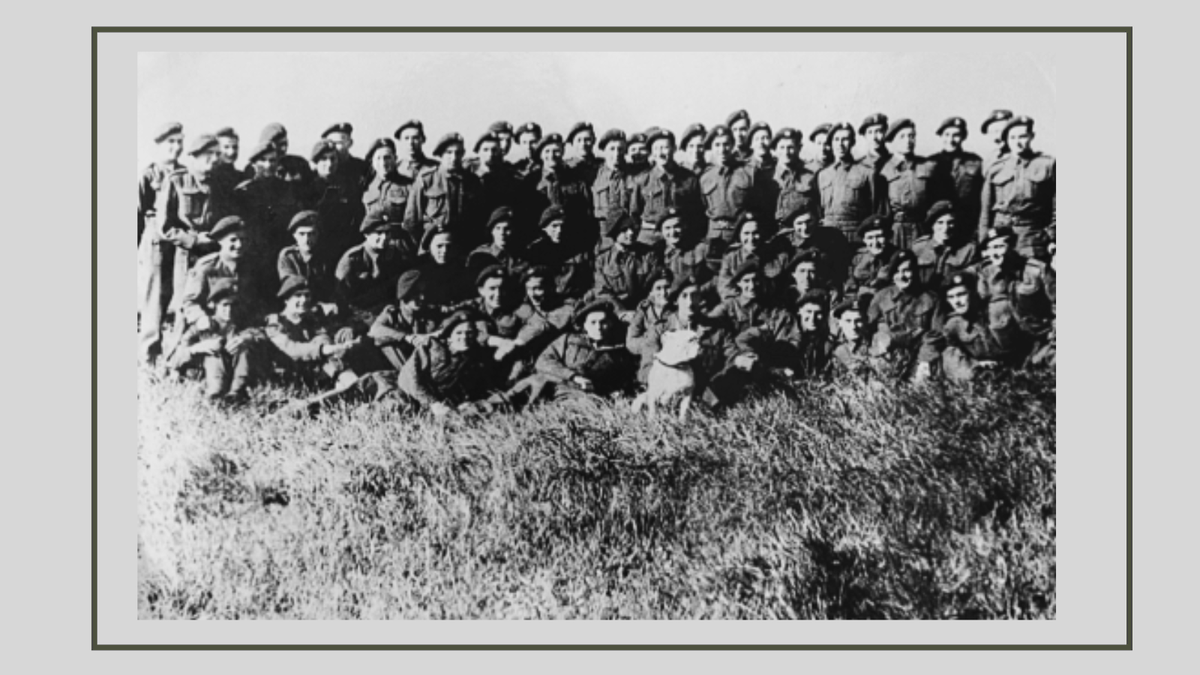In the 1960s, Herman Rothman recognised a name on a list of accused Auschwitz war criminals.
It was someone he once knew.
He had Perry Broad's diary in his attic.
What happened next took him to the courtroom of one of the most infamous Nazi trials in history:
(🧵)
It was someone he once knew.
He had Perry Broad's diary in his attic.
What happened next took him to the courtroom of one of the most infamous Nazi trials in history:
(🧵)

This is that story, told by Herman Rothman:
In the late 1950s in a cellar in Munich, a hoard of documents was discovered and the name of Perry Broad surprisingly appeared in the newspapers. Alarm bells rang but I temporarily filed the information, but it was to re-surface some ten years later. I was about to cross paths with Perry Broad again.
In the early 1960s I heard on the radio and read in the newspapers of the arrest of twenty-two people accused of war crimes in Auschwitz. As I scanned the list I found Perry Broad’s name amongst them. The copy of his diary which I had amongst my own papers in my attic immediately came to mind.
(continued)
In the late 1950s in a cellar in Munich, a hoard of documents was discovered and the name of Perry Broad surprisingly appeared in the newspapers. Alarm bells rang but I temporarily filed the information, but it was to re-surface some ten years later. I was about to cross paths with Perry Broad again.
In the early 1960s I heard on the radio and read in the newspapers of the arrest of twenty-two people accused of war crimes in Auschwitz. As I scanned the list I found Perry Broad’s name amongst them. The copy of his diary which I had amongst my own papers in my attic immediately came to mind.
(continued)
I wrote to the War Office enclosing this copy and enquired whether there were any objections to submitting it to the Judiciary in Frankfurt where the forthcoming Trial was scheduled to be heard.
About two or three weeks later I received a letter from the War Office confirming that there were no objections raised to submitting it to the Frankfurt Courts as it had been declassified. This I did. A swift response from the Prosecuting Office arrived, stating that the diary had produced great interest. He enquired whether I would be prepared to appear in person at the Court Hearing and give evidence. I readily agreed, thinking back to the times I had spent with him in Munsterlager.
(continued)
About two or three weeks later I received a letter from the War Office confirming that there were no objections raised to submitting it to the Frankfurt Courts as it had been declassified. This I did. A swift response from the Prosecuting Office arrived, stating that the diary had produced great interest. He enquired whether I would be prepared to appear in person at the Court Hearing and give evidence. I readily agreed, thinking back to the times I had spent with him in Munsterlager.
(continued)
I arrived in Frankfurt a day or so earlier to allow time to prepare myself for the Hearing. As I had not been to the city for quite some time, and in order to relax mentally and physically, I took a walk.
During the evening meal my thoughts were preoccupied with seeing Perry Broad again after so many years. The last time we met was almost twenty years earlier and so many experiences must have changed both of us. The thought occurred to me: Are we now on opposing sides or am I assisting him? In other words, what effect would my appearance in Court have on him and his immediate future?
My previous association with him, if I can call it that, became an enigma. Did he take me in? Will tomorrow or the days after give me a true answer to the questions posed? I cannot say I slept well. During the night thoughts become not easier – the opposite is true.
(continued)
During the evening meal my thoughts were preoccupied with seeing Perry Broad again after so many years. The last time we met was almost twenty years earlier and so many experiences must have changed both of us. The thought occurred to me: Are we now on opposing sides or am I assisting him? In other words, what effect would my appearance in Court have on him and his immediate future?
My previous association with him, if I can call it that, became an enigma. Did he take me in? Will tomorrow or the days after give me a true answer to the questions posed? I cannot say I slept well. During the night thoughts become not easier – the opposite is true.
(continued)
Nothing changed my resolve to speak the truth as I saw it. Let the judges evaluate the true importance of the diary and my testimony in this jigsaw of evidence.
After breakfast on the day of the Hearing, I took a taxi to the Courts. Because of the immense publicity surrounding the Auschwitz Trial, the City Hall with its large public gallery was converted into a makeshift Courtroom. Continuously long queues formed despite the fact that it was the second year of the Trial and the demand for seats was still enormous. Seven judges were in attendance. Room had to be found to seat them comfortably and they were accommodated on the extended stage.
(continued)
After breakfast on the day of the Hearing, I took a taxi to the Courts. Because of the immense publicity surrounding the Auschwitz Trial, the City Hall with its large public gallery was converted into a makeshift Courtroom. Continuously long queues formed despite the fact that it was the second year of the Trial and the demand for seats was still enormous. Seven judges were in attendance. Room had to be found to seat them comfortably and they were accommodated on the extended stage.
(continued)
A session was already in progress when I arrived and I was asked to wait in a very large room adjoining the main hall. I sat in an uncomfortable chair and felt very depressed simply because the effort I had made to come to Frankfurt, leaving my young family behind, and then being seated in a cold, unfriendly, bare room. To make matters worse, a policeman entered chaperoning a man into an adjoining room, leaving the door wide open, then dashing out to fetch him a glass of water and then disappearing.
It seemed quite obvious that the man was one of the accused, who feeling unwell, was left by himself to recover. It appeared to be an endless period before he was collected and taken back to the Court. Already annoyed by my treatment, I had to wait a further period before being called into the courtroom.
(continued)
It seemed quite obvious that the man was one of the accused, who feeling unwell, was left by himself to recover. It appeared to be an endless period before he was collected and taken back to the Court. Already annoyed by my treatment, I had to wait a further period before being called into the courtroom.
(continued)
Someone eventually came and directed me to the converted Assembly Hall. I entered the hall and took my place on the raised dais. It became clear to me why this particular venue had been chosen. To the left were seated nearly all the defendants together with their respective Counsels and their advisers and assistants and to the right sat the Prosecuting Counsel with their entourage.
There were a great number of interested parties as well as the worldwide press occupying the rear of the Hall. In the gallery sat the public. The first one or two rows reserved for VIPs. I was sworn in. The questioning was conducted in German.
(continued)
There were a great number of interested parties as well as the worldwide press occupying the rear of the Hall. In the gallery sat the public. The first one or two rows reserved for VIPs. I was sworn in. The questioning was conducted in German.
(continued)
When I finished my evidence the Chairman of the Court interrupted the proceedings and welcomed the sixty-nine year old International Jewish Leader and World Chairman of the Zionist Federation, Nahum Goldman, accompanied by his entourage. They arrived and were taking their seats in the front row of the Public Gallery. My father revered this man and to my family and me, he was a legendary figure. Understandably the judge paid him this honour.
The Chairman then continued and announced that the diary of Perry Broad would be read aloud to the Court, the reading to be shared with two of his colleagues. There was a short break and the Judges reconvened.
(continued)
The Chairman then continued and announced that the diary of Perry Broad would be read aloud to the Court, the reading to be shared with two of his colleagues. There was a short break and the Judges reconvened.
(continued)
After a short explanation about the background of Broad’s diary he commenced reading aloud to an absolute silent Court. The delivery of Perry Broad’s diary made a completely unexpected impact amongst the public and officials in this makeshift Courtroom. It impressed me greatly that the Chief Justice started the reading, two judges continued and he finished the last part.
The descriptions read out produced a diversity of reactions from the audience. There were cries of horror and anguish. People screamed out and several fainted.
(continued)
The descriptions read out produced a diversity of reactions from the audience. There were cries of horror and anguish. People screamed out and several fainted.
(continued)
I realised when I first read this Report some eighteen years before that there were continuously a multitude of horrors reported on the radio and in the press and this Report was one of many hundreds. It became almost part of daily life. I had visited Bergen Belsen shortly after its liberation.
Now, eighteen years later when people thought they had heard everything and laid it to rest, suddenly it was all churned up again in greater force. Perry Broad had created six copies of his report. I had the only surviving copy.
Examined during the trial under oath, I confirmed that Perry Broad had written it by himself and that the report roughly covered what Broad had told me in person.
(continued)
Now, eighteen years later when people thought they had heard everything and laid it to rest, suddenly it was all churned up again in greater force. Perry Broad had created six copies of his report. I had the only surviving copy.
Examined during the trial under oath, I confirmed that Perry Broad had written it by himself and that the report roughly covered what Broad had told me in person.
(continued)
On leaving the Courtroom a number of journalists waiting outside, posed questions in English and German and took photographs. I also gave a short interview for the radio and some Television Stations returning to the hotel physically and mentally exhausted.
Understandably, I could not sleep and reflected most of the night on what I had said or should have said. Is objectivity conceivable I asked myself? Did I portray prejudices which influenced my answers? Had Perry Broad changed or was he still the same man I knew or possibly thought I knew? No clear thoughts were possible. I postponed my judgment and eventually fell asleep.
(continued)
Understandably, I could not sleep and reflected most of the night on what I had said or should have said. Is objectivity conceivable I asked myself? Did I portray prejudices which influenced my answers? Had Perry Broad changed or was he still the same man I knew or possibly thought I knew? No clear thoughts were possible. I postponed my judgment and eventually fell asleep.
(continued)
The next day, on my way to the airport, I continued to ponder on my answers given in Court. I had been brief, precise, unemotional and assumed I had fulfilled all that was required of me.
Before boarding I hurriedly bought a number of German newspapers, put them in my briefcase for reading on the plane. Again and again I thought back on everything which had taken place during the last few days. It all appeared unreal. The world I envisaged and looked forward to, and felt comfortable with, momentarily collapsed. My Pipe-dream world did not exist. Two decades ago people fought to stay alive and saw there a simple, innocent, hopeful dream being shattered. Is this the true world I am living in or is it partly or totally hallucinary?
(continued)
Before boarding I hurriedly bought a number of German newspapers, put them in my briefcase for reading on the plane. Again and again I thought back on everything which had taken place during the last few days. It all appeared unreal. The world I envisaged and looked forward to, and felt comfortable with, momentarily collapsed. My Pipe-dream world did not exist. Two decades ago people fought to stay alive and saw there a simple, innocent, hopeful dream being shattered. Is this the true world I am living in or is it partly or totally hallucinary?
(continued)
On arrival at London Heathrow Airport I abruptly returned to the real world. If I needed confirmation I found it soon by the customary fight of people trying to leave the plane. There were unusually long queues before the luggage arrived. Yes, this is reality I said quietly to myself.
I managed to buy a copy of the Daily Express. To my utter surprise there appeared on page two a report of my Court appearance in Frankfurt. I bought several copies and proceeded to Customs. To my astonishment the Customs Officer told me he knew all about me. ‘Yes,’ he said, ‘I read the paper. Carry on the good work,’ and waived me on.
(continued)
I managed to buy a copy of the Daily Express. To my utter surprise there appeared on page two a report of my Court appearance in Frankfurt. I bought several copies and proceeded to Customs. To my astonishment the Customs Officer told me he knew all about me. ‘Yes,’ he said, ‘I read the paper. Carry on the good work,’ and waived me on.
(continued)
Fame at last I thought. During the homeward journey the world looked different. My attitudes and values changed. At home my wife Shirley and our children welcomed me with love and affection. It struck me that seven days only prevented me from a possible fate like those in the Auschwitz camp or the fate of my best friend Siegfried Mandelkern who was shot paradoxically after release from Sachsenhausen concentration camp. Returning to my family, I listened quietly to all the news during my short absence. Then broke my silence by non-stop talking.
(continued)
(continued)
The following day at breakfast my children complained. My son did not like his Weetabix and had a conundrum about what to choose from a large selection of cereals. ‘Cornflakes again,’ my daughter grumbled. These were momentary and real predicaments. But phases change in time, so I reasoned. Some childhood problems remain or become more acute in adolescence. They may either fade or disappear by adulthood. Some never leave until one reaches seniority. Nevertheless to me my children were and are a strong and permanent anchor. My wife and I gave them always durable love, shelter, safety, stability and security. All these irreplaceable assets totally deprived from incarcerated victims of Nazism.
(continued)
(continued)
So I had given my evidence at the Auschwitz Trial and returned to normal family life, but I did not know obviously the outcome for Perry Broad.
Perry Broad’s English name constituted an enigma and possibly made him politically unreliable. An intelligent, educated and cultured young man posted to the top killing factory of innocent people did not fit. Surely he could have been more useful to the German war machine in many other capacities?
People normally posted to serve in concentration camps in a similar capacity generally had lower IQs and did not have his attributes. Did his father, his name, his early life in Brazil make him politically unreliable and hence influence the posting?
(continued)
Perry Broad’s English name constituted an enigma and possibly made him politically unreliable. An intelligent, educated and cultured young man posted to the top killing factory of innocent people did not fit. Surely he could have been more useful to the German war machine in many other capacities?
People normally posted to serve in concentration camps in a similar capacity generally had lower IQs and did not have his attributes. Did his father, his name, his early life in Brazil make him politically unreliable and hence influence the posting?
(continued)
True, his bad eyesight could certainly have been a contributory factor in his posting. From my experience he certainly did not conform to the archetype brutal Nazi killers that were so prominent as guards and administrators of the murderous camps.
What other evidence has been found and made available to the Courts? Time would tell. For me it took a considerable time before normality returned. My accumulated workload helped. However this event left an indelible imprint on me.
(continued)
What other evidence has been found and made available to the Courts? Time would tell. For me it took a considerable time before normality returned. My accumulated workload helped. However this event left an indelible imprint on me.
(continued)
A year later the newspapers printed the result of the trial. Perry Broad (SS Rottenführer) was born in Rio de Janeiro, Brazil in 1921. He had come to Berlin with his mother at the age of five. He studied at a Technical school in Berlin and in 1941 joined the Waffen SS as a foreign member. He was detached on duty to Auschwitz concentration camp, but asked for transposition to the Politische Abteilung where he conducted interrogations. He remained in Auschwitz until the liberation of the camp in 1945 and was arrested by British forces. Being a POW, he voluntarily wrote his report about his experiences and work in Auschwitz.
He was arrested twelve years later. He was subsequently freed in 1960 after payment of 50.000 DM as surety. He was re-arrested in November 1964 and stood trial for war crimes.
(continued)
He was arrested twelve years later. He was subsequently freed in 1960 after payment of 50.000 DM as surety. He was re-arrested in November 1964 and stood trial for war crimes.
(continued)
It was revealed in the court at the Auschwitz Trial in Frankfurt that he had participated in interrogations, tortures and executions. Perry Broad was found guilty of war crimes and sentenced to four years in prison.
There is a postscript to the Perry Broad story. In the court case of David Irvine v Deborah Lipshitz which began in January 2000, the defence lawyer quoted extracts from Perry Broad’s diary. Judgment was given in favour of the defence.
Concluding my thoughts on Perry Broad, many years later reflecting on him, I continue to find him a very enigmatic and complex character. There is little doubt that he did not conform to the stereotype of concentration camp administrative staff or guard.
(continued)
There is a postscript to the Perry Broad story. In the court case of David Irvine v Deborah Lipshitz which began in January 2000, the defence lawyer quoted extracts from Perry Broad’s diary. Judgment was given in favour of the defence.
Concluding my thoughts on Perry Broad, many years later reflecting on him, I continue to find him a very enigmatic and complex character. There is little doubt that he did not conform to the stereotype of concentration camp administrative staff or guard.
(continued)
Clever, educated, cultured, talented in many ways, articulate and with a certain charm. In contrast he displayed irrational hyper-sensitivity to any subject relating to the East. At the time I excused this with the then common German reaction; however, perhaps not as pronounced or exposed.
Subsequently this all fell into place when he had appeared in a number of major War Crimes Trials, for example the Zyklon B Case Trial of Bruno Tesch, Dr. Droshin and Karl Weinbacher in March 1946. At that trial he had appeared as a witness for the prosecution. At the Auschwitz Trial in 1964–65 he was a Defendant.
(continued)
Subsequently this all fell into place when he had appeared in a number of major War Crimes Trials, for example the Zyklon B Case Trial of Bruno Tesch, Dr. Droshin and Karl Weinbacher in March 1946. At that trial he had appeared as a witness for the prosecution. At the Auschwitz Trial in 1964–65 he was a Defendant.
(continued)
The events of the war continued to surface throughout my life. Such a cataclysmic event in one’s life cannot be erased or forgotten. That included the urge to re-visit the site of Bergen-Belsen concentration camp. Does a distressing and agonising experience leave an indelible imprint in your mind? Or does your mental defense mechanism store it where it becomes less painful? The latter is, I believe, to be the case.
The test came when I thought it imperative that my young family should see a small leftover or perhaps a credible part of the Holocaust. Hence our trip to Berlin first to visit my parents who were living there temporarily. They were conducting a court case to receive compensation for the loss of machinery and other equipment during the war and contesting their pension.
(continued)
The test came when I thought it imperative that my young family should see a small leftover or perhaps a credible part of the Holocaust. Hence our trip to Berlin first to visit my parents who were living there temporarily. They were conducting a court case to receive compensation for the loss of machinery and other equipment during the war and contesting their pension.
(continued)
We stopped en route at Bergen-Belsen. I had last seen it in mid-summer 1945, now it was more than 20 years later. When we arrived the camp looked lifeless but still with large monuments inscribed with the names of the dead. Gone were the ambulances, the barracks of survivors with shrill voices, the endless visitors looking, searching, hoping to find their loved ones, not far from the deep large craters which were wholesale cemeteries.
Where were those who miraculously escaped the fields of mass extermination? And those who were buried in unmeasured quickly-prepared graves often unidentified and unrecognisable by their loved ones?
(continued)
Where were those who miraculously escaped the fields of mass extermination? And those who were buried in unmeasured quickly-prepared graves often unidentified and unrecognisable by their loved ones?
(continued)
Bergen-Belsen is situated near the village of Bergen on the road to Hanover and not, as might be expected, in some far off isolated place. Originally intended for holding Jews to be exchanged for Germans in allied territory, it later became a fully-fledged concentration camp with the infamous Josef Kramer, who was first in Auschwitz, becoming the third Kommandant.
In November 1945 he was tried for war crimes and sentenced to death. I remember repeating to my children the stories recounted to me by the Hungarian Jewish inmates of how the camp staff was well-fed, but the inmates starved. A typhus outbreak killed tens of thousands of the inmates, including the young Anne Frank whose diary has become so famous.
(continued)
In November 1945 he was tried for war crimes and sentenced to death. I remember repeating to my children the stories recounted to me by the Hungarian Jewish inmates of how the camp staff was well-fed, but the inmates starved. A typhus outbreak killed tens of thousands of the inmates, including the young Anne Frank whose diary has become so famous.
(continued)
The camp had had room for 10,000 inmates. In actual fact it housed well in excess of 60,000, of which some 20,000 died in March 1945 and 37,000 died before liberation.
In April 1945 the British troops who liberated the camp were overwhelmed by the catastrophic numbers still dying on a daily basis. A number of Germans who worked as guards or in the administration of the concentration camp feared arrest and prosecution, so discarded their uniforms and dressed as inmates. Some were successful and were never seen again.
Even when I arrived in mid-summer 1945, ambulances were continuously leaving the barracks for hospitals with very many survivors still not surviving.
(continued)
In April 1945 the British troops who liberated the camp were overwhelmed by the catastrophic numbers still dying on a daily basis. A number of Germans who worked as guards or in the administration of the concentration camp feared arrest and prosecution, so discarded their uniforms and dressed as inmates. Some were successful and were never seen again.
Even when I arrived in mid-summer 1945, ambulances were continuously leaving the barracks for hospitals with very many survivors still not surviving.
(continued)
Twenty years later, the memories of that meal with the young Hungarian survivors continued to haunt me. After the visit to Belsen, we continued our journey to Berlin where my parents were living for a short time.
On arrival they listened in silence to the children’s experience of Belsen camp. The grandchildren were aware, even at that young age, not to ask Opa (grandfather) and Oma (grandmother) of their wartime experiences. An unwritten code prevailed. Do not ask your grandparents ‘what did you do during the war.’ The wall of silence had penetrated even the next generation of grandchildren.
(continued)
On arrival they listened in silence to the children’s experience of Belsen camp. The grandchildren were aware, even at that young age, not to ask Opa (grandfather) and Oma (grandmother) of their wartime experiences. An unwritten code prevailed. Do not ask your grandparents ‘what did you do during the war.’ The wall of silence had penetrated even the next generation of grandchildren.
(continued)
At a very much later date I asked my children whether they remembered the trip and for their comments. To my surprise they recalled very little except for a subsequent incident with the porter of the block of flats where my parents lived. What had happened was that on arriving in Berlin we had parked our car in the courtyard. My parents threw down the keys to the rear metal gate entrance. As we entered, the porter came out of his flat and started to shout and aggressively, saying in German: ‘when opening and closing the gate you do it in silence. That is not the first time you’ve done it.’
(continued)
(continued)
I answered quietly: ‘We are no longer in Nazi Germany.’ I told him that if he had anything to say, he was not to shout, but speak quietly. Not satisfied with my answer, shortly afterwards he complained to my parents.
Astonishingly, my father listened silently and did not reply. I was indeed surprised at his reaction but on reflection realised that because of his experiences during the war years he was still traumatized. As time went on he became more and more withdrawn.
My mother’s reactions were not dissimilar but she confirmed to me that my father suffered severely from the Holocaust syndrome which included the fear of authority.
(continued)
Astonishingly, my father listened silently and did not reply. I was indeed surprised at his reaction but on reflection realised that because of his experiences during the war years he was still traumatized. As time went on he became more and more withdrawn.
My mother’s reactions were not dissimilar but she confirmed to me that my father suffered severely from the Holocaust syndrome which included the fear of authority.
(continued)
Many years later my daughter Janice recollects very little about Bergen Belsen but clearly remembers the contretemps with the porter and her subsequent comments were: ‘I had more profound feelings about the Nazi caretaker of Opa and Oma’s building. I was angry – this man still hated Jews after everything we had been through. How dare he? And how dare we put up with it.’
My explanation in more simple terms: Forgotten are impersonal happenings but clearly remembered those which are personal.
(continued...ending)
My explanation in more simple terms: Forgotten are impersonal happenings but clearly remembered those which are personal.
(continued...ending)
I hope this thread has expanded your 20th century knowledge, and Herman Rothman's personal account of this event was insightful to you.
If so, follow me @DrHelenFry for more unique wartime stories and forgotten human moments from history.
(end).
If so, follow me @DrHelenFry for more unique wartime stories and forgotten human moments from history.
(end).
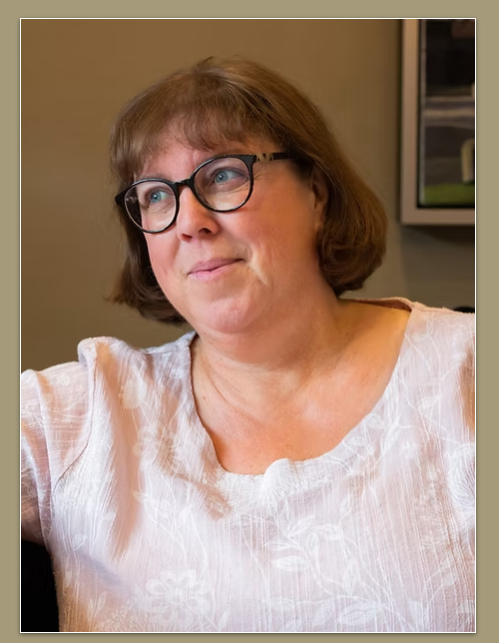
• • •
Missing some Tweet in this thread? You can try to
force a refresh



